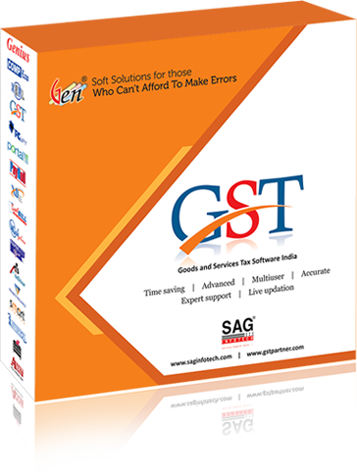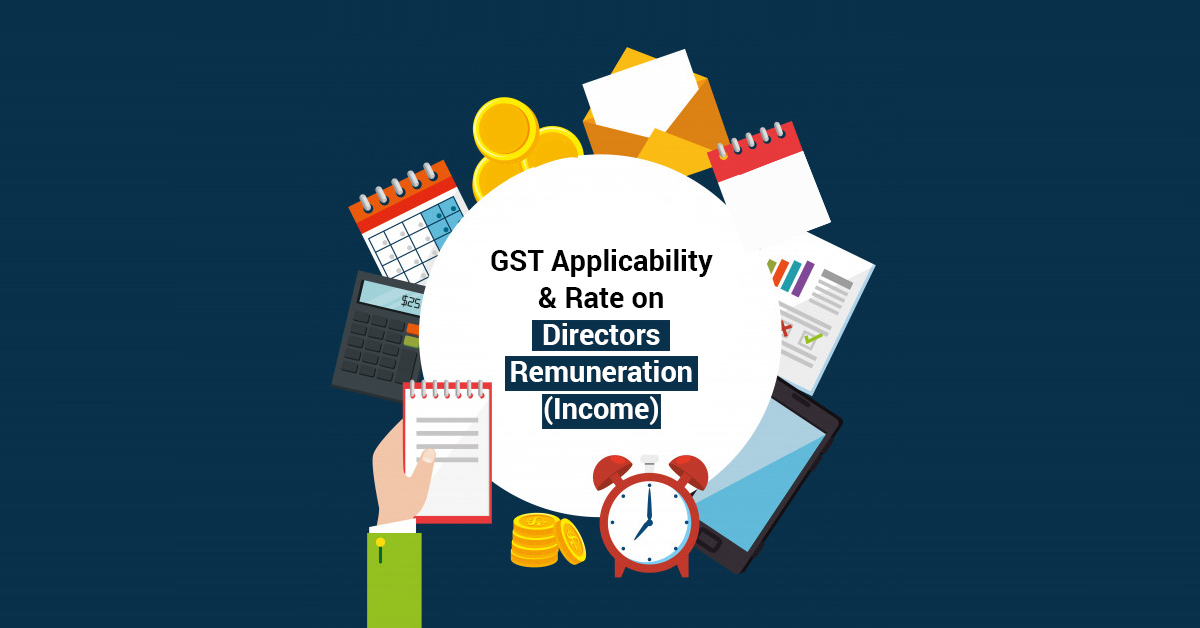This article presents details about GST on directors remuneration, GST on sitting fees, commission and so on.
Contents
Sections and Notifications for Tax Applicability
Under section 9(3) of CGST Act & section 5(3) of IGST Act, the government has the authority to notify the levy of GST on RCM basis on goods and services.
According to the government notification through entry no. 6 of Notification No. 13/2017- Central Tax (Rate) dated 28th June 2017 & entry no. 7 of Notification No. 10/2017- Integrated Tax (Rate) dated 28th June 2017, any services provided by a director of a company to the concerned company would come under reverse charge.
Section 2(102) of CGST Act has given the definition of “Services” as:
“services” means anything other than goods, money and securities but includes activities relating to the use of money or its conversion by cash or by any other mode, from one form, currency or denomination, to another form, currency or denomination for which a separate consideration is charged.
So, according to the notification by the government- the tax on services provided by the director would be payable on reverse charge. Means the sitting fees, commission and the services charges for providing a guarantee for a loan granted to the company etc comes under reverse charge so there is liability of GST on directors remuneration.
Who has to Pay the GST?
As per the GST Law, The Section 9(3) and Section 9(4) of the CGST Act constitutes the provisions related to reverse charge applicability. According to these provisions, there are mainly two cases where the RCM is applicable which are as follows:
- Supplies notified by Government under section 9(3)
- Taxable Supplies to a registered person by an unregistered person
In the first case, the liability to pay tax falls on the recipient side means the one who receives the services and not the one who supplies the services. Under section 9(3), the liability to pay tax is on the company who receives the services (recipient company), no matter even if the turnover from director’s services is more than INR 20 lakhs or 10 lakhs.
Is it Mandatory for Directors to be Registered under GST?
As per notification no. 5/2017 – Central Tax dated 19th June, 2017, Government has mentioned that the individuals, who are engaged in making supplies of only taxable goods or services or both, the total tax on which is subject to reverse charge basis by the receiver of such goods or services or both under sub-section (3) of section 9 of the Act, are exempt from mandatory registration under the Central Goods and Services Tax Act, 2017 (12 of 2017).
According to section 24(iii) of CGST Act, a person who needs to pay tax under RCM must be mandatorily registered regardless of the limit of its turnover which implies that:
- GST registration is not mandatory for the directors of the company if they are providing only those services on which Tax has to be paid on RCM basis by the recipient of the services.
- GST registration is mandatory for the recipient company to pay tax on RCM basis, regardless of its turnover size.
Nature of Transaction for Applicability of GST on Directors Remuneration
The applicability of IGST, CGST and SGST that is liable on reverse charge services depends on the place of supply for such services & the place of the supplier of services.
Place of supply & the place of the supplier of services, both, hold an utmost value, as where IGST is applicable on inter-state supplies and CGST and SGST are applicable on intra-state supplies, the tax has to be paid in the state where supply takes place, and so contributes to that particular state government’s revenue.
The principles of determining the nature of supply (i.e. interstate supply or intrastate supply) remain the same in case of RCM as well, since the government has merely chosen the recipient of goods/services as the point of convenience from the point of view of better compliance with the law.
Interstate and Intrastate Supply
Section 7 and Section 8 of the IGST Act defines the inter-state and intra-state supply respectively. According to these sections, the transaction is, an inter-state supply when the place of the supplier and supply are different and not located in the same state or UT, and an intrastate transaction when the place of the supplier and supply are located in the same state or UT.
Place of supply
According to Section 12(2)(a) of the IGST Act, the place of supply is the location where the services are provided or received.
As far as the director’s service is concerned, it is served to the board of the company. The board refers to the supreme body of corporate administration. So here the place of supply is the place where the board of the company is located, where directors’ services are supplied.
In general, it is the registered office of the company. But in some cases, it is the place from where the company is ruled or controlled. For instance when the companies register their offices at distant places or remote locations like factories, tea gardens, the original place of its formation, etc. In such cases, the location where important board meetings take place or the place where high-level management is situated in the place of corporate administration.
Note: It excludes the place if management has conducted a meeting at a holiday spot for a change. The common or usual place of corporate governance will still be considered as the place of supply.
Recommended Post: No GST on Salary Paid to Private Sector Employees
Location of the supplier in case of director services
The section 2(15) of IGST Act defines the location of the supplier of services as the place where –
- supply is made from a place of business which is registered, the location of such a place of business;
- supply is made from a place other than the place of business which is registered (a fixed establishment somewhere else), the place of such fixed establishment;
- supply is made from two or more establishments, whether the place of fixed establishment or business, the location of the establishment which is highly concerned with the provisions of the supply; and
- the usual place of residence of the supplier is located, in the absence of such places (as such directors do not own any registered office).
Self Invoicing in RCM Cases
Section 31(3)(f) of the Act states that a registered person shall issue an invoice in respect of goods or services or both received from supplies covered u/s 9(3) and unregistered suppliers covered u/s Sec 9(4).
There is no legal standard format for such invoices but the only thing required is that it should be in compliant with Rule 46 of the CGST Rules. Rule 52 of the CGST Rules is also there which prescribes the format of the payment voucher when payment is made to such a person.






